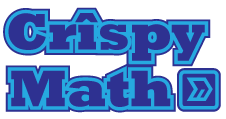The Pyramid Game
/The other day, in a post about the lately very funny Family Feud, Dan asked
«Which game show works in the other direction, giving you lots of items and asking you to move one level of abstraction higher to the category that includes them?»
There are probably multiple answers to this question, but the most obvious answer to me is the bonus round from the $100,000 Pyramid, known as The Winner's Circle.
The game is best learned by watching a few You Tube videos (of which there are hundreds). But here are the basics. There are two primary players. One player gives the clues to six subjects of increasing difficulty and the other player is trying to guess the subjects that those clues fit into. The clues must be in the form of a list of items that fit the subject or category. So if the subject was salad dressings the clue giver could say «French, thousand island, or Italian» but they could not describe the category saying something like «It's what you put on a bowl of leafy vegetables.» The clue giver is also not allowed to use charades, synonyms, or prepositional phrases. So, for example, for the category «Things that are quiet» «moviegoers» would be a permissible clue, but since «people at a movie» is a prepositional phrase it would get you buzzed. It's fussy sure, but that is what makes it great.
I have used The Pyramid Game as an occasional segment in my classroom since my first year of teaching. At the beginning it was very rudimentary:
Before I had a projector I played the game by holding up big index cards. I apologize about the Word Art. I was young.
The first time I played this game in class there was no YouTube so I actually spent a few days video-taping Winner's Circle segments at home, signed out a TV cart at school, and showed some clips during class. Today I would probably flip the introduction part and have kids watch a couple of the YouTube clips beforehand and then maybe show one more in class.
Students play in pairs and while only two students play at a time it is easy to get the entire class involved because, especially at the beginning, hardly anyone will win the game! After the group loses everyone else can chime in with the clues that were missed in the heat of the moment. The harder subjects can really get you thinking. A great strategy is to try to approach the category from multiple different directions. If the category was «Things that you join» you could try the obvious «a club» and then also «pieces of wood» (yes «of» is a preposition, but it is allowed).
Here is one of the first slide deck iterations. A student came up with the category pictured.
I thought this was pretty good at the time!
You can also tailor the game to your classroom. I am going to use this game at the end of class a couple days this week, so I will include categories like «Facts about the Unit Circle» and «Trig Identities.» The frequent TV show categories similar to «What Goldilock's Might Say» are also great for classroom use, «What Mr. Roy Might Say» is also usually a hit. Just like on Family Feud and Dan Meyer's clip if you open the door to racy responses the students will run right through it, you have been warned.
Students initially find this game extremely challenging, but also grow to really enjoy it (You might need to play it a couple times to appreciate this). I have had students get so enamored with the game they devise their own clue sets for classmates to try. They frequently go for the ludicrous «Things a Vegetarian would not Eat», «Bad Jokes», or the impossibly difficult «Words that Rhyme with Orange», «South Dakota towns» etc.
Dan's post inspired me to touch up my Keynote* slide deck so that it looked more like the classic TV show from the 80's and so that it would also be as easy as possible for someone other than me to use in class. The deck I am posting here has five rounds ready to go. There are also a few template slides at the end explaining how to easily customize the game for your classroom. Finally, I added a rules slide at the beginning to explain the game, but definitely show them some clips from TV as well.
*In a perfect world I would program this in Flash, but for the time being a slide deck works pretty well, you will just need an additional timer, and you can't really go back if the students pass on a subject.






